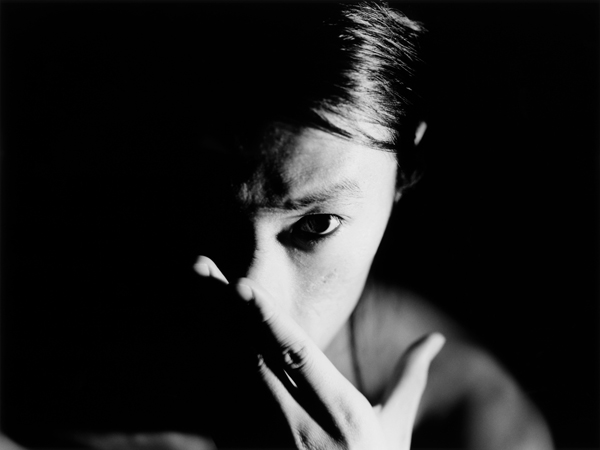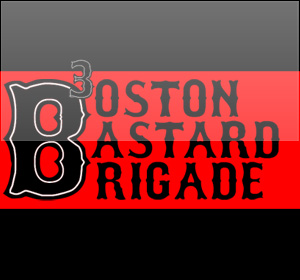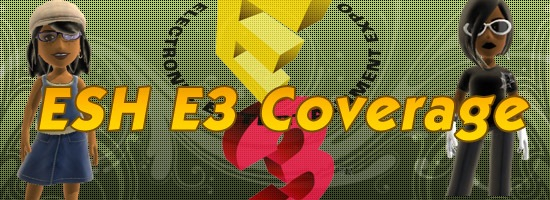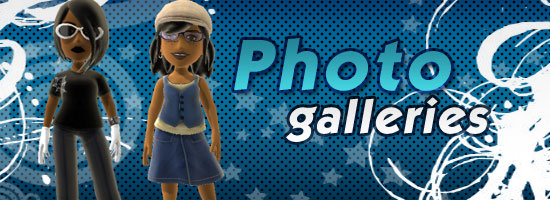
When I started watching "Samurai Champloo" a couple years back, my ears caught the sound of an amazing rapper. As the curious ducky that I am, after I watched the first episode I went online to check out who it was. My search found one name: Shing02.
Since 1998, when he first started recording under the Mary Joy Recordings label, Shing02 has been changing the underground rap scene dramatically. From his fast and philosophical lines to his catchy, original beats Shing02 has proven to anyone who listens that he is one of the world's best. This year marked the release of his long-awaited (and brilliant) album "Waikyoku." Via email I decided to ask him a few questions about his past, his career, and his hopeful future.
King Baby Duck: Do you remember the first rap album you ever bought?
Shing02: I actually don't, regardless of genre! I remember when I got my first Walkman though, that was in junior high. I thought it was so crazy to listen to music with ear phones. I remember dubbing a lot of my sister's music collection, and swapping cassettes with friends in Japan. I was a very casual listener until i moved up to college, that's when I really got into the music "scene" which was absent in my high school days.
KBD: When did you realize that you had this sort of musical talent? What inspired you to go forth on the path of an aspired rapper?
S02: I don't know how you define musical talent, but I started making hip-hop because it was fun. I enjoyed every single aspect of it, like writing, recording, mixing, doing the album covers, selling it at stores, etc, the whole DIY [Do It Yourself] ethic, and finally doing shows and tours off your work, which did take a long time to develop.
I would have to say my environment that I was brought up in as an artist inspired me the most, if it weren't for my fellow artists and friends in the Bay Area I would not be making music right now. Maybe some kind of art, but most likely not an MC.
KBD: You have lived in many different parts of the world. You were born in Japan, raised in Tanzania and England, and now currently reside in California . How have the cultures of these different worlds inspired you to be the person and artist that you are today?
S02: I think seeing different sceneries when you're young and having diversity ingrained in you as a child is very fortunate. My parents were definitely thinking ahead. (For instance, making sure my name would be easy to pronounce, etc.)
My dad was a businessman so we moved around a lot. It was definitely hard leaving friends behind every time, but you learn to adapt wherever you go. I know some kids who couldn't fit in to any culture as a result, so I am lucky my family kept me positive.
Interestingly enough, I've been sort of a hermit in terms of having a home because of my childhood, I think. I live in LA now, but I was in the Bay Area for 18 years because it was so comfortable. I still love touring and traveling though.
Shing02 (prod. Eccy) - Ultimate High
KBD: You’ve collaborated with the likes of DJ Krush, Nujabes, DJ A-1, DJ $HIN, and many others. Who has been your favorite person you’ve worked with?
S02: I've learned something new form every collaborator, because they all have very distinct styles, and because I always look for those type of people to work with. The best situation is to do something you've never done before, so you challenge yourself to grow.
Working with the sorts of DJ Krush, Ryuichi Sakamoto, Tadanobu Asano would be something I never dreamed of when I started, but it definitely wouldn't have happened if I didn't make sure I was satisfied with every project along the way.
KBD: Many people know you from the song "battlecry" (with Nujabes), which was featured in the hit anime series "Samurai Champloo." How did performing this theme song come to be, and do you feel that something like "Samurai Champloo" helped to bring the sounds of Japanese underground hip-hop into the ears of the mainstream crowd?
S02: I first worked with Nujabes on a song called Luv(sic). When I first heard the beat I knew I had to rhyme over it, so I had to beg Pase Rock to give it to me who was originally going to use it.
The Luv(sic) series have been popular (part 3 and counting) so I'm quite happy about that. So after working with Nujabes on several projects, he asked me to do Battlecry. Originally I did a Japanese version on a different instrumental of his but he didn't like it (I did!) so we switched to a darker beat for the English version. At the time I recorded it, I had no idea it would be syndicated in the US, so it's been interesting to see people get into my work because of it.
Check out the remixes (http://www.e22.com/shing02/battlecry_res.htm) too!
KBD: You invented an instrument called the Vestex Faderboard. Where did this idea originate from, and how do you feel about the fact that many other people in the rap industry are using it?
S02: The idea came from different sources. As much as I was into writing songs, being around world class scratch DJs had me thinking about experimental sounds. One day I just put it all together and came up with the idea that I could duplicate with a multi-track recorder, and the rest is history.
You can check out the FAQ page for more info (http://www.e22.com/faderboard/). I'm really glad people continue to use it all over the world. The distribution is very limited now, but the idea will get out more in the future. Hopefully upgrades.
Shing02 (with DJ A-1) - Embrace [LIVE]
KBD: Your latest album, "Waikyoku," was recently released in many parts of the world. I remember hearing a couple of the demo tracks from the album over two years ago, notably "Jukou," "Houyou" and "Nagusame," and how it felt refreshing to hear something new and refreshing in the hip-hop world. Was there an idea for a concept for this album (perhaps dealing with "Waikyoku," or "torture" as it is translated)? What was the lengthy process of making this album like?
S02: Waikyoku actually means Distortion (as in a story) or Contortion (of a shape). Wai is like Y, the chromosome, Kyoku also means Song, so a lot of play on words. I just thought it would be a good title so I had it saved for like ten years. The concept was really dealing with being human and overcoming trials and tribulations from the spiritual side.
Musically, I wanted to keep it analog and organic as much as possible. I started out sampling sounds from my drummer Motoki and musicians around me to build the basic track. Then I got busy finding antique gear for mixing and adding EFX over the tracks. Dub music influenced me a lot over the years too.
Making the whole album was very much like creating a feature film. Although it involves a lot less people, I feel the effect you can have on a listener is just as great because it asks for the visual imagination of the audience. The final phase of editing in Tokyo was so hardcore, I was holed up in a studio for two months. I don't think I can ever go through something that strenuous for a while. when I finished mastering, I joked around with my mates that I had PTSD (Pro Tools Stress Disorder), no disrespect. I did not want to look at waveforms for a while.
KBD: You’ve mixed many different styles into your music, such as the Pink Floyd-ish "Shakunetsu," the reggae feeling in "Saikou," and the traditional Japanese flavor in "Kushi to Kanzashi." When writing a song do you already have in mind the beat and feel of how it will sound, or does the idea of the rhythm appear after the song has been scribed?
S02: With an album like this one, the songs literally took a life on their own after a while. Or I allowed elements to brew on purpose, just for kicks. For example, after I finish the basic track and the rhyme, I would take a step back to see what would make it complete.
Sometimes it took months, if not years, for the right concept or musician to come along and make it full. It was really about paying attention to the layering that would enhance the vibe the most.
It's not the most efficient way to work, but I am glad I took the time for this particular album. Looking back I was too ambitious to involve so many live musicians, but being able to feature the talent was the reward that I was looking for.
KBD: The two-part song "Bijou" tells a story of some kind with exciting speed and flow. However, as it is a story told in Japanese, the story is lost in the ears of the gaijin (foreigners). If you can, please describe the tale for the non-Japanese listeners.
S02: OK :) The gist of the story is about the Hunter (Karma) meeting the Princess (Mei), by way of freeing this creature (Bijou) from a trap. By the end of the story (lol), he is involved in a war, risking his life to save the Princess, and he doesn't even know whether he trusts her or vice versa. At the same time, he subtly confesses to the audience that it was actually his trap that caught Bijou in the first place. The narrative also suggests that the creature may not have existed at all.
So the story is really a tale about love, how we get entangled into relationships (AKA war between two nations) but it's really our own undoing in the first place. How educational. Anyways, writing the story was a lot of fun, I actually wrote the entire tale from the perspective of four characters, and I had to cut a lot of the narrative out while editing (a la movies) so I might have to retell the tale in different episodes.
Also working with Kakushin Nishihara (biwa) and Philip Gelb (shakuhachi) for the intros and outros was so crucial to this play, it really wouldn't have happened without it.
Kakushin's late teacher (Kinshi Tsuruta) was a collaborator of Toru Takeitmitsu for the epic "November Steps", which was a huge inspiration as well. Kakushin now has a biwa version of the whole tale, which is wonderful. I don't think an original biwa score has been written in a while, at least in this kind of production.
KBD: Do you think that Japanese music has (or ever will) become popular in America as it has in many other different parts of the world? How is music able to break the language barrier so much easier than other forms of communication?
S02: I think the good thing about the current technology is that if you're interested about anything, you can grab the information instantaneously. It's quite a luxury we take for granted.
Even in my eyes Japanese music is often looked upon as extremes (pop or quirky), so I would like keep feeding the world of music that I think is universally interesting.
KBD: Besides your hip-hop stuff, you are also involved with the futuristic jazz trio Kosmic Renaissance. How was this band formed, and how do you balance both styles of music? Do you feel that jazz and hip-hop still share a strong connection, or has this connection weakened as years passed?
S02: The band was formed as a result of me carrying around the Faderboard and reaching out to musicians to spread the word. I have to credit Charles Brack for putting us together.
Honestly I haven't really balanced my hip-hop style and the free jazz too much, I like to keep things separate somehow. I can envision rapping when I am old, and also playing Faderboard when I'm even older. (Maybe develop some crazy natural transforming.)
My involvement with music comes in circles. When I started Kosmic Renaissance I was purely interested in sound, I had little inspiration to rap. Back then around 2003, with the global turmoil I had to go back to re-learning music because I actually felt I wasn't getting anywhere with words. I lost confidence in shooting blanks at the world, it was that deep. Now I feel I can relate to music in a positive light, so I am very grateful I'm able to continue doing it.
KBD: Not only do you keep yourself active in the music world, but also in the activist world; most notably "Stop Rokkasho" (founded by Oscar-winning composer Ryuichi Sakamoto), which deals with the dangers of the recently-built Rokkasho Reprocessing Plant. How important is it to have a voice in a matter such as this (or for anything with a greater cause), and how did you find yourself becoming part of something that was crucial to the world?
S02: It's extremely important, because the more you learn, the more you'll be conscious of your actions and how you can influence the world. You need knowledge in order to form an opinion, so you can speak on it at the least.
The energy issue is really all about values at the end of the day, whether you choose to exploit natural resources at the expense of the environment and more
immediately, health issues. People have a right to be alerted to the truth. I encourage people to look at both sides of the issue and not just listen to the benefits that corporations advertise. That's too easy.
Shing02 - Nagusame
KBD: It seems that a lot more people are listening to more hip-hop with a more peaceful, and hopeful image (i.e.: Flobots, Gnarls Barkley, and the Streets to name a few). Do you think the changing times (political, economical, environmental, etc…) have something to do with the rise of serene rap, or do you think that it is something else?
S02: That's what everybody is saying, but times have been changing drastically every year. Music serves both as tools of education and entertainment. Some people are good at one thing, some are good at both.
I have no knock on the current state of music. As long as the creators are responsible enough things are going to be alright.
KBD: What’s the future hold for Shing02? Any touring plans that the American fans should look out for?
S02: I really don't know what the future holds. I really don't make extended plans because the world is in a flux. It's more important to be available whenever the opportunities arise.
Right now I'm in the works to make more stuff with talented people, and I just want to travel more!
Please check my MySpace for tour and audio updates. (http://www.myspace.com/shing02)
I would like to thank Shing02 for taking time off his schedule to answer these questions. His new album "Waikyoku" is available on iTunes, as well as his "iTunes Live From Tokyo" EP. I urge you all to check these out, as well as some of Shing02's earlier works!
This is King Baby Duck: "Original organic till the day that I die!"

Labels: Champloo, Hip Hop, Hip-Hop, Interview, King Baby Duck, Music, Rap, Samurai, Samurai Champloo, Shing02



























« Home